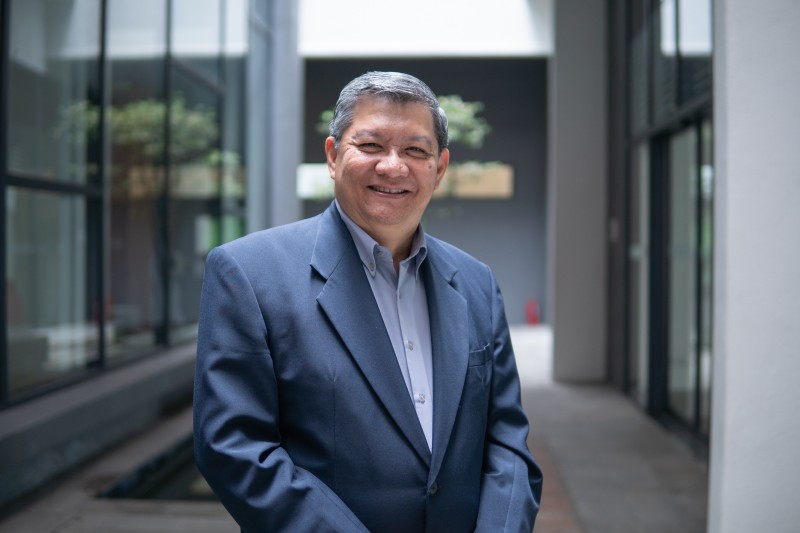 Since its inception, HELP University which was established by educationists, has always emphasized the importance of providing the best training and support to those educating our children: the Educator-Carer.
Since its inception, HELP University which was established by educationists, has always emphasized the importance of providing the best training and support to those educating our children: the Educator-Carer.
HELP University therefore developed the Diploma in Early Childhood
Education (DECE) and a Bachelor of Early Childhood Education (BECE) for those who have a love and passion for teaching children. These are highly sought after programmes for those interested in pursuing a career in working with children.
Apart from being a stand-alone qualification enabling graduates to work in preschools, the DECE qualifies holders to enter directly into Year 2 of the BECE programme at HELP.
The Early Childhood Care and Education (ECCE) programmes at HELP University are more than just a preparation for the early years of schooling. It nurtures and prepares the Educator-Carers to contribute to the holistic development of a child’s social, emotional, cognitive, and physical needs in order to build a solid and broad foundation for lifelong learning and well-being.
The ECCE programmes prepares the Educator-Carer with the knowledge and understanding, skills and strategies, and attitudes and values in distinctively ECCE domains namely through emphasizing aspects of safety and security, and hygiene and health in the nurturing of children.
The programmes also trains the Educator-Carer to partner and work closely with parents to monitor and assess the child’s progress through reports and the maintenance of proper records.
It also gives a personal and professional identity to graduates and equips them with the capability to play a role as a crucial link between children, families, and the community by developing the necessary social and communication skills needed for such engagements.

-Dr Gerard Louis, Pro Vice-Chancellor (Mental Health) & Dean,
Faculty of Behavioral Sciences, Education and Languages
The ECCE programmes at HELP provides the Educator-Carer with a firm grounding in specific areas: an exceptionally strong foundation in the social and psychological understanding of the child; developing the creativity and talents of Educator-Carers across multiple ECCE settings and scenarios through the arts, drama, music and movement; balanced preparation for work in any preschool setting as a result of the 12 to 16-week workplace practicum and empirical based course and fieldwork; and an opportunity to learn and improve their English Language proficiency through specialist courses in English.
The strength of the programmes lies in its approach to Teaching and Learning . Besides lectures and tutorials, classes are conducted in the Learning Simulation Lab where fieldwork and empirical studies that highlight the importance of experiential engagement are carried out with children. This is premised on the fact that the most effective learning takes place through direct experience.
Students are also exposed to techniques that relate to the documentation of children’s learning progress along the developmental continuum. This enables a systematic charting of gains, gaps or shortfalls in knowledge and skills acquisition and putting in place intervention plands to bridge the gaps in the child’s development.
An advantage for HELP University students who are studying the Early Childhood programmes, is that they are able to access the facilities and resources in HELP International School (HIS) which is located next to the university’s Subang 2 campus.
HIS is one of the best international schools in Malaysia and in 2018 among 8 schools shortlisted by the Times Education Supplement (TES) to be in the running for the International School of the year award. HIS has a truly talented, experienced, and international team of teachers with an enlightened programme for nurturing Educator-Carers during their 8-week teaching practice and practicum that is a compulsory part of their professional preparation. HIS offers the best kind of teacher training and education hub where best practices are taught and learned.

– Dr Goh Lay Huah
Head, Department of Education, HELP University
HELP’s Early Childhood Education programmes sets out to train early childhood educators to be passionate and committed about the work of educating and caring for children. There are two Practicum periods in the programme. The first involves an 6 to 8-week placement in a Nursery, followed by another 6 to 8-weeks in a Preschool, when they are in the final semester of their programmes. For the duration of the practicum, students are expected to complete a stipulated number of hours and lessons based on criteria set by the university’s Department of Education.
Working adults who wish to enroll in the Early Childhood programmes but do not meet the minimum entry requirements, can consult the Malaysian Qualifications Agency (MQA) to see if they qualify for the Accreditation of Prior Experiential Learning (APEL). APEL enables individuals who have work experience, but do not have the formal academic qualifications to pursue a degree. It recognizes the work experience and other courses and programmes of these candidates, and awards academic credits towards their degree.
For more information on HELP University’s Early Childhood Education programmes, please visit our university website, www.help.edu.my, or email us at [email protected]
